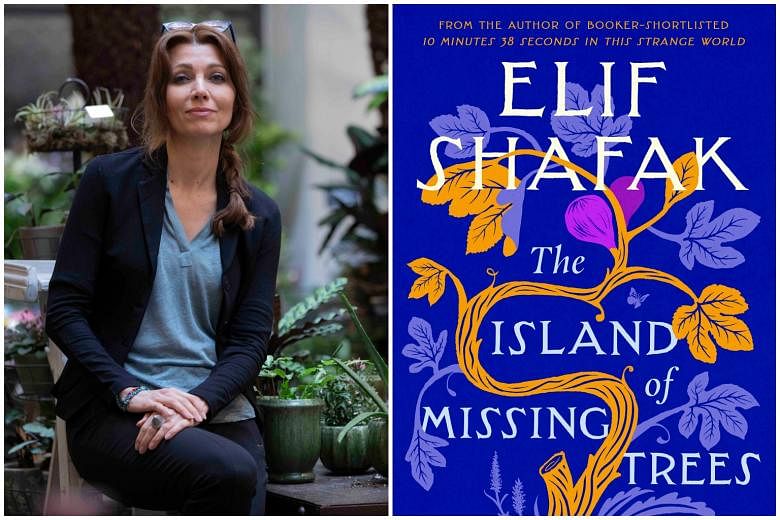The Island Of Missing Trees
By Elif Shafak
Fiction/Penguin Books/Paperback/354 pages/$32.10/Available here
3 out of 5
As an English winter descends, a man buries a fig tree in the back of his garden.
Beneath the earth, the fig tree dreams. It shifts between its hibernating present and its past as another fig tree that flourished in a tavern on the island of Cyprus.
This tavern was the secret meeting spot of a young couple - Kostas, Greek and Christian; and Defne, Turkish and Muslim. Theirs is an impossible romance on an island cleft by ethnic strife, soon to be devastated by the 1974 civil war.
Years later, Kostas is a widower living in London, Defne having recently died.
Their teenage daughter, Ada, is struggling in her grief. She suffers a breakdown in class and lets out a very long scream. This ends up in a video which goes viral and turns her into a global meme.
Political divides and generational trauma are familiar terrain for Shafak, who is perhaps Turkey's best-known female novelist and now lives in London.
From her controversial The B*****d Of Istanbul (2006) to the Booker Prize-shortlisted 10 Minutes 38 Seconds In This Strange World (2019), she returns often to repressed secrets, displaced souls and the violence humans do to one another in the name of some tribe.
Here, she embarks on an extended metaphor of trees both literal and familial.
"My father says trees can remember," Ada explains, "and he says sometimes young trees have some kind of 'stored memory', like they know about the traumas their ancestors have gone through."
Ada, rootless, has never known her Cypriot family. When her estranged aunt Meryem arrives suddenly in London after years of alienating Defne, Ada is torn between hostility and curiosity about the unknown past that seems to be manifesting uncontrollably in her present.
The novel, full of arborescent meanderings, grasps at ecological transcendence, exploring the effects that war has not just on humans but also the natural world.
But it muddles this effort with its anthropomorphising of the fig tree, a narrator prone to rambling exposition, gossip and maudlin outbursts. Though it harps on the incompatibility of arboreal time and human time, it is sentimentally anthropocentric in its outlook.
If there is one thing Shafak unfailingly excels at, it is scene-setting. Her portrait of Cyprus seems to spring off the page in all its fresh beauty.
She is especially good with food. The tavern at the heart of the novel boasts a mouth-watering menu - the oven-roasted figs with honey and aniseed ice cream are a highlight - that brokers a delicate peace between the island's clashing cultures through cuisine.
Its owners, Yiorgos and Yusuf, are Greek and Turkish respectively and later revealed to be partners in more than a business sense.
In such passages does the sap of the story begin to flow, thick with loss and love.
If you like this, read: The B*****d Of Istanbul by Elif Shafak (Penguin Books, 2006, $18.14, available here). Armanoush, a young Armenian American, travels to Istanbul to visit her stepfather's Turkish family, including Asya, the illegitimate daughter of the title.


